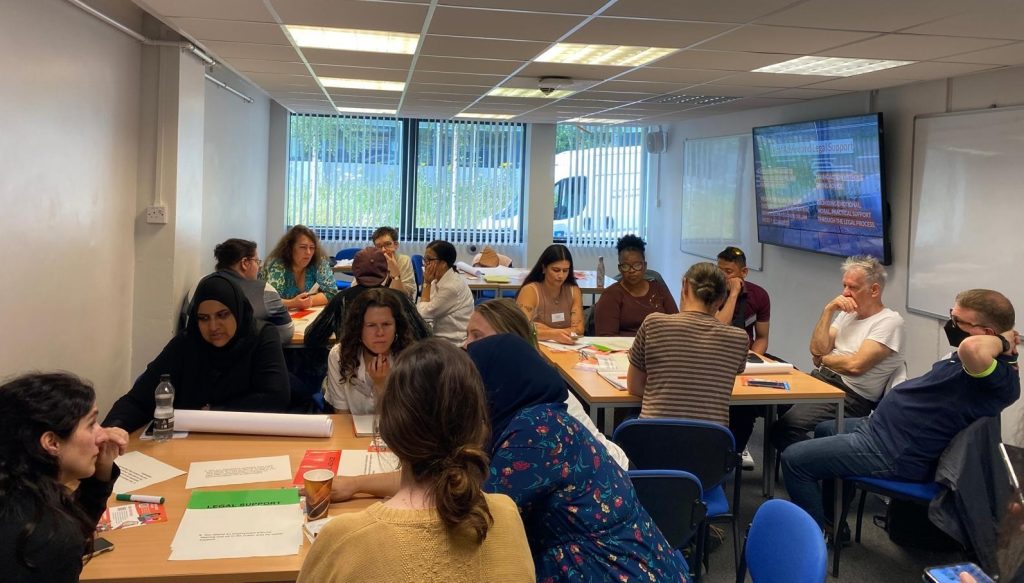
On the first weekend of July, Right to Remain attended the Ella Baker School of Organising conference in Nottingham. We were pleased to have been invited to this incredible event, and for the opportunity to connect with people and organisations from trade unions to charities, campaigners and activists from across the UK. Connecting with and learning from people across the social justice spectrum is such an important factor in building radical solidarity for the migration justice movement.
At the conference, we delivered a workshop on Work Exploitation and Migrant Workers’ Rights. This was our first time running a workshop on this topic, and gave us a great opportunity to test new material. This blog explains what our session was all about.
Why did we choose this topic?
The title of our workshop was ‘Strengthening our power to challenge work exploitation’, and was an exploration of how the UK’s visa system increases the risks of work exploitation. Our session was designed for people who want to learn about why migrants are at greater risk of work exploitation and about how to support migrants who are experiencing difficulties at work – from poor pay and conditions, to insecure hours and salary.
Traditional workplace organising is not always the best approach to supporting people with visa issues, but that does not mean that we can’t take action. This session was designed to equip participants with the knowledge of how to support people experiencing work exploitation, and advocate for the rights of migrant workers.
What happened in the workshop?
To introduce this topic, we gave a brief overview of the UK’s immigration system, and the rules surrounding visa sponsorship. Some participants were surprised to learn that the UK’s rules around work visas are so restrictive. For example, if you want to leave a job where your employer is also your visa sponsor, you have just 60 days to find a new sponsor before you become undocumented. This creates a clear power imbalance between employer and employee, which increases the risks of exploitation.
After introducing ourselves, we gave a brief overview of how to use the Right to Remain Toolkit. We emphasised 5 important things to know when sharing the Toolkit, and then gave an overview of the most relevant key guides we have published on this topic:
To give a few examples of where work exploitation occurs, we considered 3 specific case studies: someone working in health and social care, an agricultural worker, and someone on the 10 year route to settlement working as a cleaner.
This exercise is designed to give participants the opportunity to consider very common visa routes in the UK, and to understand how the UK’s visa system works in practice. We asked participants to consider the following questions in groups:
- Where on the spectrum of work exploitation is this person’s experience?
- What issues do you think this person is experiencing?
- How might you be able to support them?
Our final exercise in this workshop was on the difference between legal advice and legal support (giving support without giving advice). This exercise is designed to give participants an understanding of why legal support is so important. By learning the difference between legal advice and legal support, we can strengthen our collective power to provide legal support to people who are experiencing work exploitation.
We did this by asking groups to consider example scenarios, such as:
- Someone who has been struggling with finding a new visa sponsor asks you for advice, and you signpost them to the Right to Remain Toolkit.
- You help someone contact a union for advice about their rights at work
- Someone you meet tells you of their experiences working on an agricultural site. You tell them their experience meets the definition of modern slavery and that they should enter into the NRM.
Feedback
Thank you to all the participants for their contributions in this workshop! We were joined by individuals from many different organisations, including the Work Rights Centre, Waling Waling, and Labour Behind the Label.
We hope this workshop provided an insight into the range of experiences migrant workers can have at work, and how we can strengthen our power to challenge work exploitation.
One participant told us our session generated the most discussion of any session they had been to at the conference, due to the complexity of the issues raised.
Another participant gave us this feedback:
‘Thanks so much. From a complete novice, this was a really great intro to these issues for me and I think pitched at a level that was inclusive of experts and beginners. Super interesting and vital work’
If you would like to hear more about this workshop, or get in touch about running a similar workshop, get in touch with Leah at leah@righttoremain.org.uk
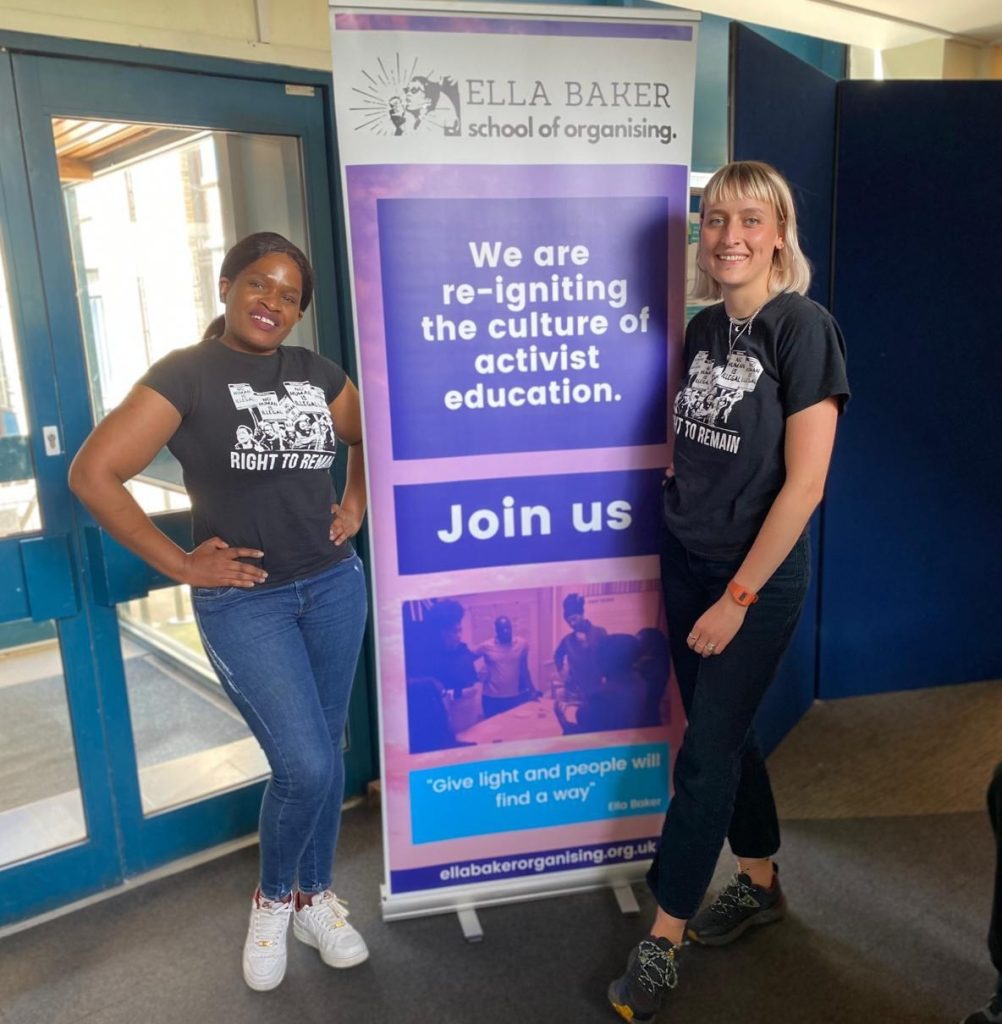

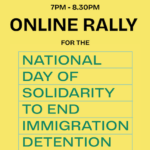
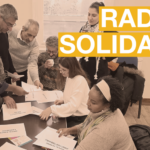








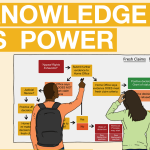

Thank you for such a brilliant session and a lovely write up of the conference.
Thank you so much for organising this brilliant conference!
such a powerful and timely session